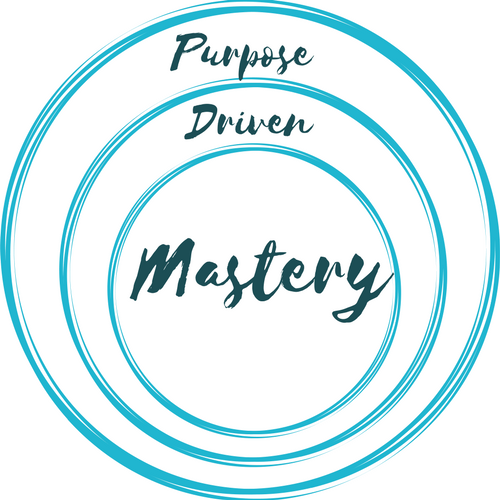“All diseases begin in the gut.”
– Hippocrates
The Second Brain
The gut is sometimes called the “second brain” because it releases neurotransmitters that affect your behavior and mood.
Additionally, it has about 70 to 80 percent of your immune system.
Nutrients found in most vegetables contain potassium, dietary fiber, vitamins A and C, and folate (folic acid) which supports red blood cell creation.
A diet rich in potassium may help maintain healthy blood pressure.
Here is a list of vegetables that contain potassium:
- Sweet potatoes
- White potatoes
- Beet greens
- Tomatoes (inflammatory)
- White beans
- Lima beans
- Spinach
- Kidney beans
- Soybeans
- Lentils
Why You Should Eat Fiber
Fiber is essential for proper bowel function as it reduces constipation and diverticulosis.
Vitamin A promotes skin and eye health by protecting them against infections.
In addition to helping with iron absorption, vitamin C keeps teeth and gum healthy.
Although dietary fiber cannot be processed by the body, it’s an excellent food source for the probiotic gut bacteria that provides steady energy to the body throughout the day and detoxifies the digestive tract.
For optimal performance in the gastrointestinal (GI) system, feeding the good bacteria in the gut is quintessential.
Having a healthy microbiome in the gut helps burn body fat and reduces insulin resistance and inflammation.
By having less inflammation in the body, the risk of illnesses such as arthritis, heart disease, cognitive decline, colds, and cancer decreases.

Be Aware of Eating Too Many Fruits, Nuts, and Grains
Most fruits contain large amounts of fiber and other key nutrients such as antioxidants, but they can also contain a substantial amount of sugar.
Moderate consumption of fruits will prevent a high level of sugar intake while receiving the benefits of fiber.
I like to view fruits as nature’s way of sweets.
Too much of it can be harmful but a small amount is beneficial for the soul.

Pathogenic bacteria (anti-probiotic) feed on sugar that steals nutrients and releases toxins into the bloodstream.
Controlling the sugar consumption level will help expel the pathogenic bacteria by starving them of their food source.
Fiber is also found in nuts, seeds, and whole grains. Nuts are usually high in fat, the most calorie-dense micronutrient at nine calories per gram.
Although nuts are healthy, beware of the amount that you consume to not underestimate the high-calorie intake.
Because many domesticated modern grains have low health characteristics, it’s important to steer away from many strains of rice that contain arsenic, poisonous, and carcinogenic.
The healthy ancient strains of rice such as brown, black, red, and wild rice that are whole-grain give more nutrients than processed white rice.
Many of these healthy grains are found at local health food stores, supermarkets, Asian markets, or online.

The Benefits of Fiber
The health benefits of eating nutrient-dense vegetables that are rich in dietary fiber may:
- Reduce blood cholesterol levels
- Protect against certain types of cancer
- Lower blood pressure
- Prevent a decrease in bone loss
- Help with weight loss because of the low-calorie (low in fat) per volume compared to that of other high-calorie food. It provides satiation, the feeling of fullness, with fewer calories and a large volume in the stomach.
- Reduce the risk of the following:
- Heart disease
- Heart attack
- Obesity
- Type II diabetes
- Developing kidney stones
- Stroke
Probiotic Foods
Here is a list of common probiotic foods.
- Yogurt (avoid brands that contain high sugar content, which may contain trans fat)
- Kefir
- Miso paste
- Kombucha tea
- Sourdough bread
- Tempeh
- Pickles
- Kimchi
- Kvass
- Lassi
- Sauerkraut

I make my sauerkraut using the steps below.
- Chop one organic head of green cabbage into tiny pieces.
- Add 1 to 2 tablespoons of sea salt.
- Optional: add other vegetables, seeds, or spices.
- Add the chopped cabbage pieces, salt, and any other ingredients into a large bowl and mix with your hands for about three to five minutes.
- Add the cabbage mixture into a clean wide-mouth glass jar and press it down tight to pack the cabbage.
- If the cabbage is not already submerged in water, add some extra water. This is an important step to prevent molding.
- Cover the glass top with a paper towel or cloth and let it ferment at room temperature for 3 to 10 days.
- Check every few days for taste. Once ready, you can store it in the refrigerator for up to 2 months.
There are also probiotic supplements that offer live strains of good bacteria to boost your gut health.
The best option is to consume fibrous food to cultivate the microbiome in your gut.
But if you want to kick-start your probiotic with supplementation, then I would recommend a soil-based probiotic such as Primal Defense.
Ensuring a healthy gut microbiota (flora) will help with digestion and improve the immune system.
I am on a mission to help 1,000,000 people, but I can’t do that without your help. Please share this article with anyone who you may think will find it valuable and helpful. Thank you very much! I greatly appreciate it!
Do you want to live purposefully and become the most powerful version of yourself? If so, start with your free gift down below.












Thank you perry for Gut Health information